A rubber bale cutting machine is a specialized industrial equipment designed to efficiently cut large, dense bales of rubber into smaller, manageable pieces for further processing in the rubber manufacturing industry.
These machines play a crucial role in the initial stages of rubber processing, where raw rubber, typically received in compacted bale form, needs to be reduced to smaller sizes that can be easily handled, mixed, or fed into
other machinery like extruders, mixers, or calenders.
**Key Components and Features:**
1. **Frame**: The machine usually has a sturdy metal frame to support the entire structure and withstand the forces generated during the cutting process.
2. **Hydraulic System**: Many rubber bale cutting machines employ hydraulic power to drive the cutting blades. This system provides the necessary force to penetrate and slice through the dense rubber bales.
3. **Cutting Blades**: Sharp, heavy-duty blades are used to cut the rubber. They can be configured in various ways depending on the machine design—some may use a single vertical blade, while others may have multiple
blades for more efficient cutting.
4. **Feeding Mechanism**: An automated or manual feeding mechanism is used to position the rubber bale correctly under the cutting blade(s). This ensures consistent and precise cuts.
5. **Safety Features**: Safety interlocks and guards are installed to prevent accidents during operation, as working with heavy machinery and sharp blades can be hazardous.
6. **Control Panel**: Modern machines feature an electronic control panel for easy operation, allowing operators to control the cutting speed, blade position, and other settings.
**Operation Process:**
1. **Loading**: The rubber bale is loaded onto the machine's feeding platform.
2. **Positioning**: The feeding mechanism aligns the bale accurately under the cutting blade(s).
3. **Cutting**: The hydraulic system actuates the blade(s) to penetrate and cut through the rubber bale. The cutting can be programmed for specific dimensions or performed manually based on operator input.
4. **Discharge**: Once cut, the smaller rubber pieces are either automatically discharged onto a conveyor belt or manually removed for further processing.
**Benefits:**
- **Efficiency**: Significantly reduces the time and labor required to cut rubber bales manually.
- **Consistency**: Ensures uniform size and shape of rubber pieces, which is critical for downstream processing and product quality.
- **Safety**: Minimizes the risk of accidents associated with handling heavy and sharp tools.
- **Versatility**: Can handle different types and sizes of rubber bales with adjustments to the machine settings.
Overall, a rubber bale cutting machine is an integral part of any rubber processing facility, enhancing productivity, safety, and the quality of the end products.
Common Models, if you have any special technical requirements, please just contact us.
Model | XQL-660 | XQL-760 | XQL-1000 | |
Cutting width(mm) | 660 | 760 | 1000 | |
Knife stroke(mm) | 680 | 680 | 680 | |
Total pressure(KN) | 80 | 125 | 200 | |
Cylinder diameter(mm) | 150 | 150 | 150 | |
Stroke taken time(s) | 16~25 | 16~25 | 16~25 | |
Motor power(kw) | 5.5 | 5.5 | 5.5 | |
Overall dimension(mm) | L | 1900 | 2000 | 2240 |
W | 720 | 720 | 720 | |
H | 2580 | 2580 | 2580 | |
Weight(ton) | 1.1 | 1.5 | 2.0 | |
Detail Images of Rubber Bale Cutter:
Control Panel
we design different type control panel according to machine needs or customers' requirements, here just put a few for your reference.
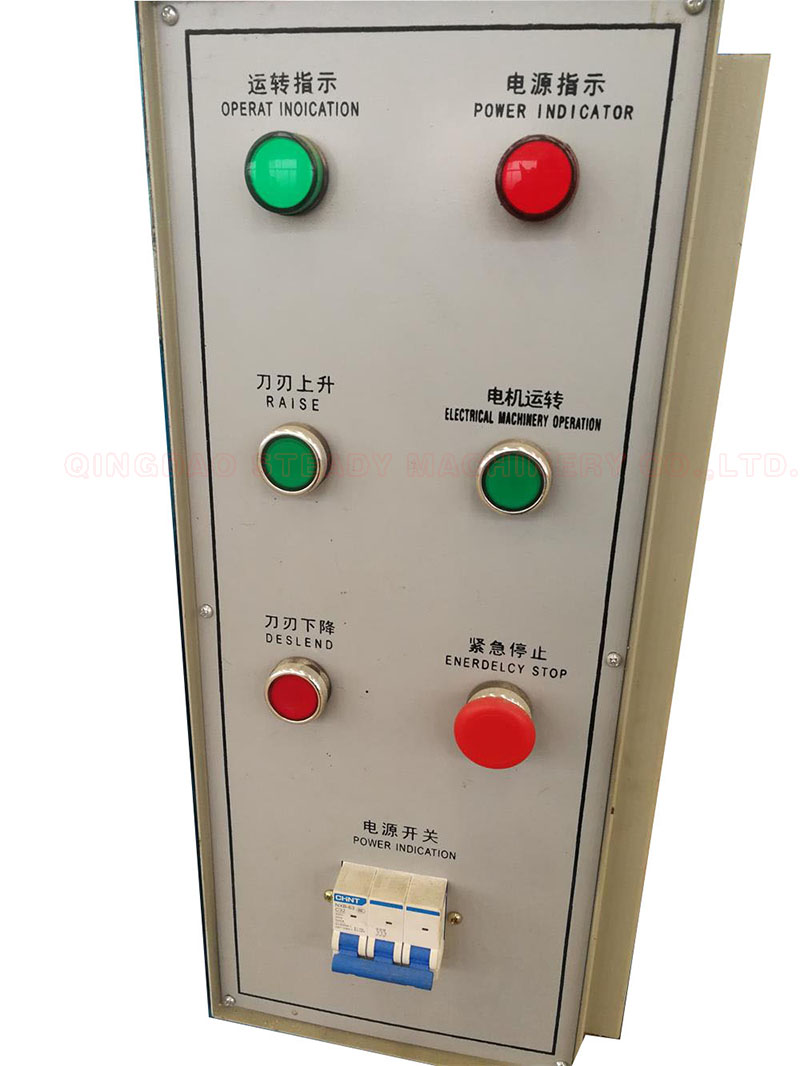
Control Box
Normally it's CHNT brand. If customers want other band, just tell us. And if customers want to change speed, there are frequency speed control machine for choice, the machine has inverter in control box.
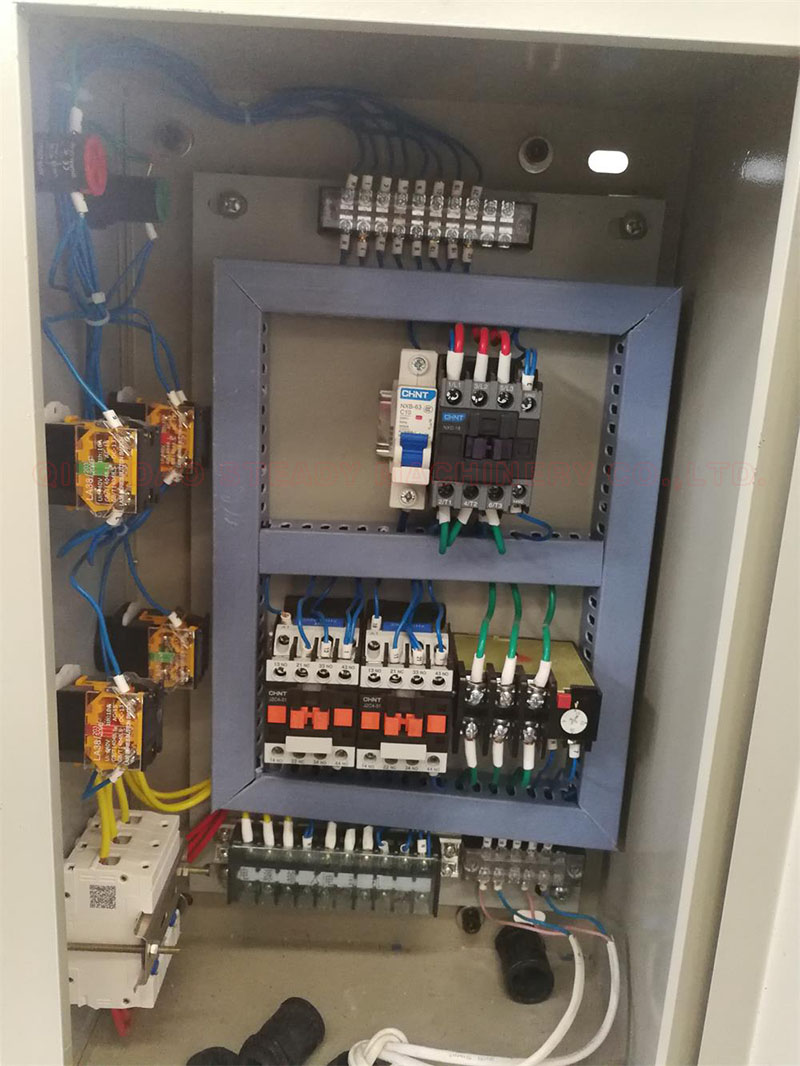
Just contact us


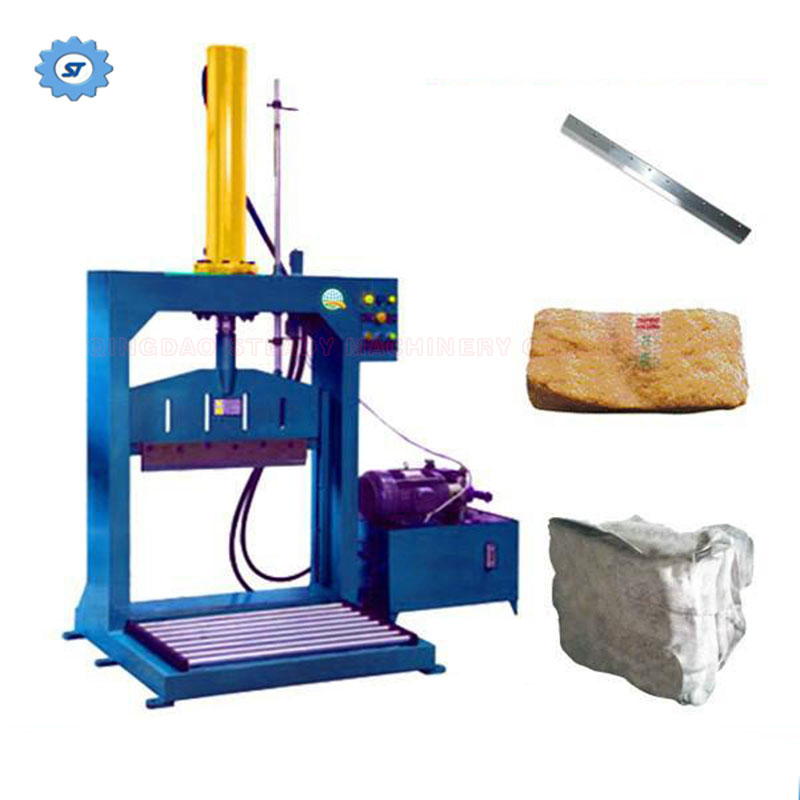
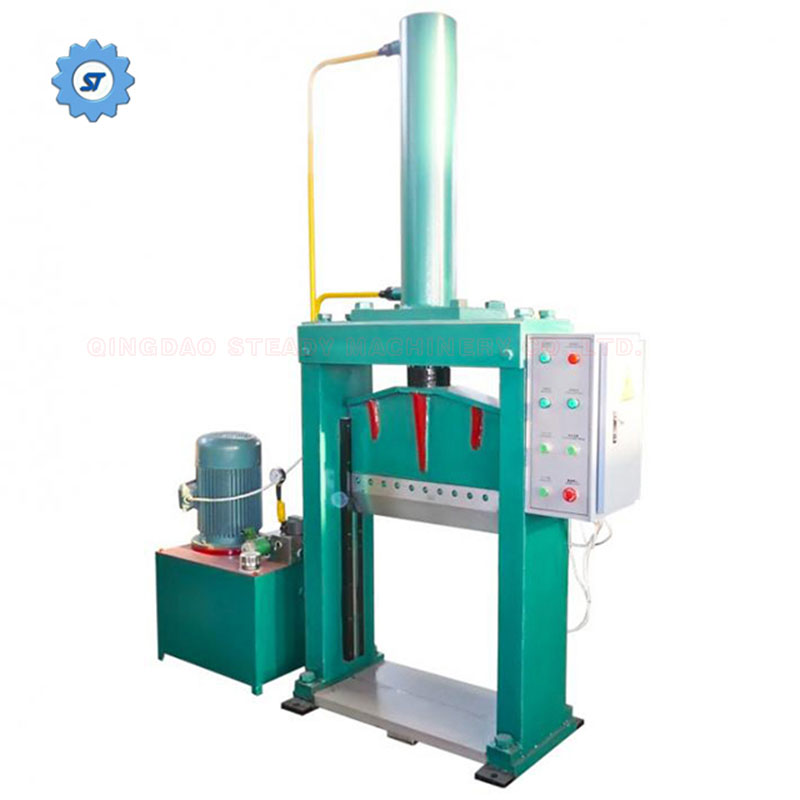
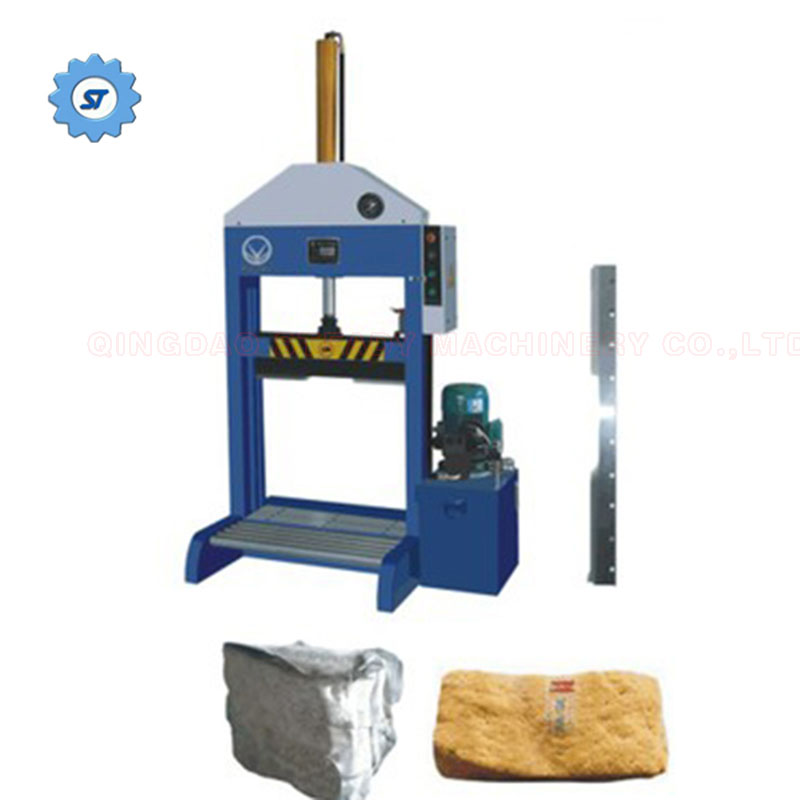
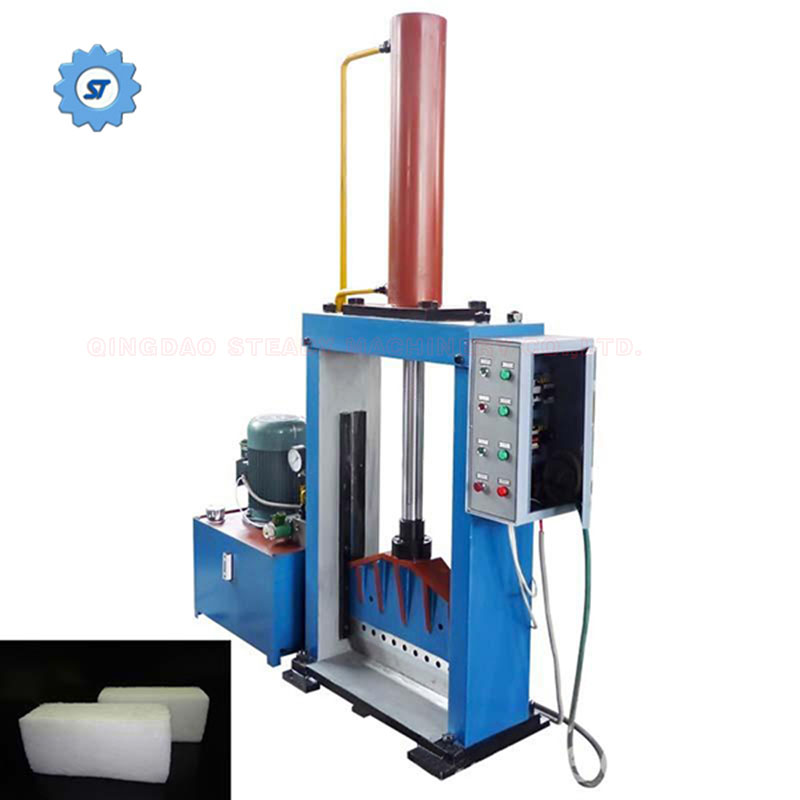
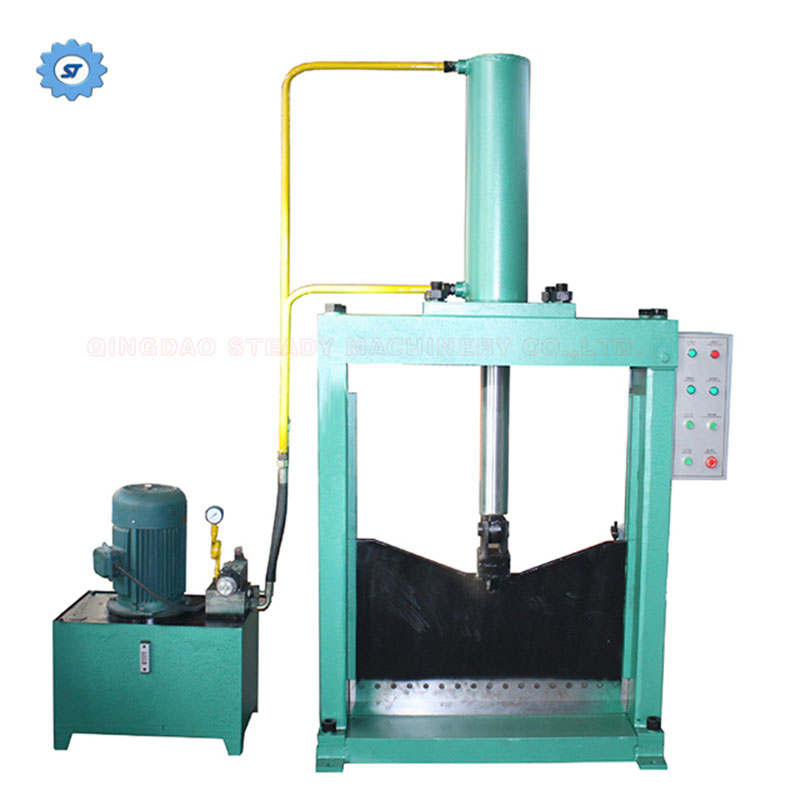
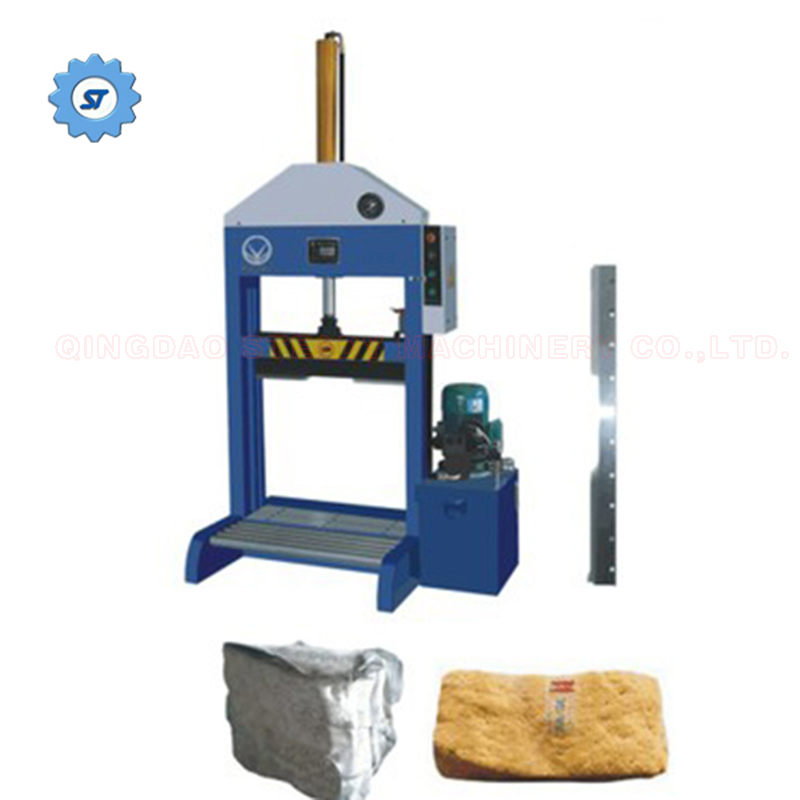
Comments: